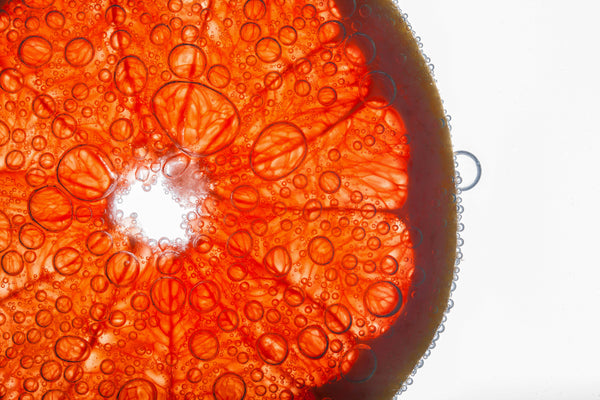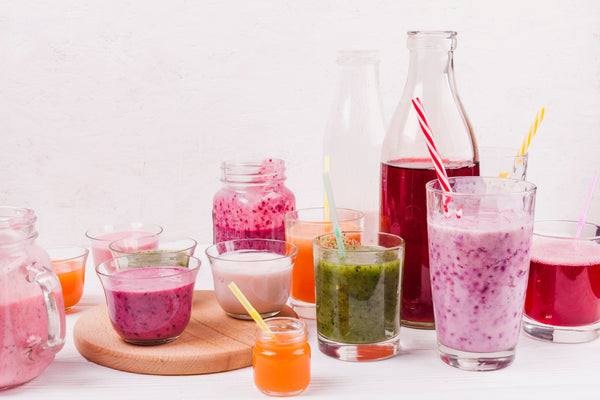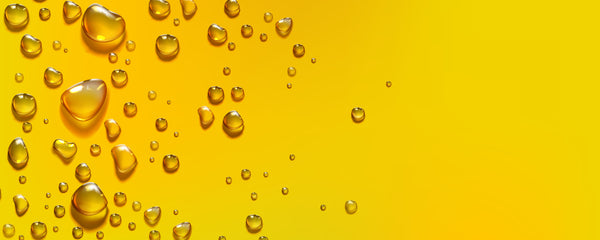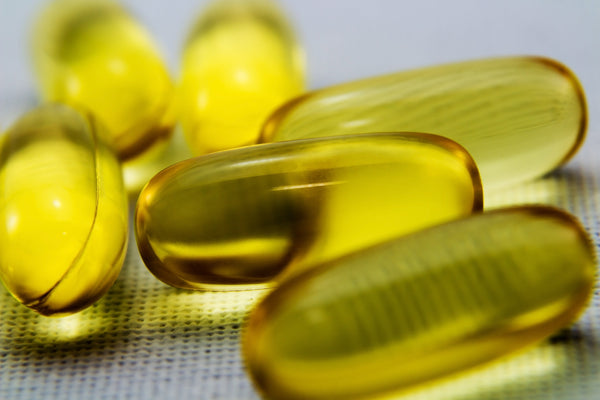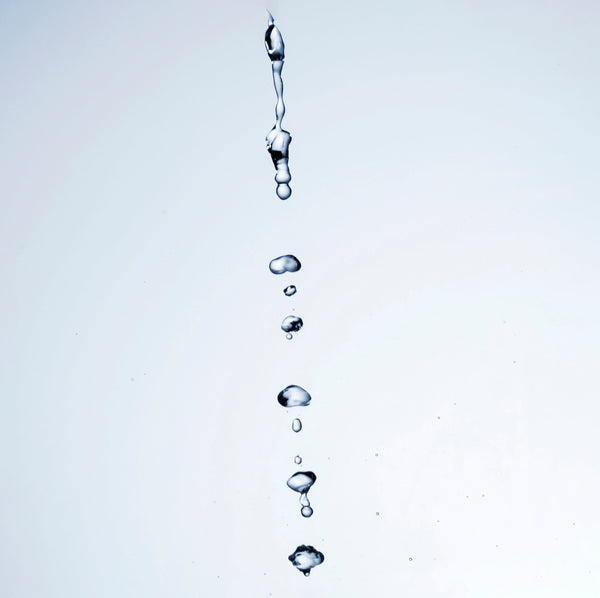The liver is one of the most critical organs in our body which performs vital metabolic functions and ushers the toxins out of our body at the right time. Yet, we continue to strain it by drinking too much alcohol, being couch potatoes, and eating junk food. It's time to start paying attention to your liver and figuring out how to strengthen and improve it. This comprehensive guide will shed light on the most important aspects of liver health. We’ll understand this beloved organ, what it does and how it functions, what diseases you can have as a result of poor liver health, and the dos and don’ts for maintaining good liver health.
What Is The Role Of Your Liver?
When we consume food, it is digested in the stomach and intestine. All the good and bad stuff that is absorbed into the blood is taken to the liver for filtration. This means the liver does the job of filtering out the things your body doesn’t need. Aside from this, it performs other functions as well:-
1. Secretion Of Bile Juice
Fat is a good source of energy, but digesting it is difficult. Most digestive enzymes are water soluble which restricts them from properly working on fatty substances. Which is why we need bile juice. Although bile isn’t a digestive enzyme, it is a very crucial part of the digestion process.
The stomach can digest up to 30% of the fats and the rest is then transported to the intestine where the liver releases bile juice. Bile juice acts as an emulsifier that aids in fat digestion. After the fat is digested completely with the help of enzymes, bile and the pancreatic juices bile salts help in the absorption of fatty acids and monoglycerides.
2. Detoxification
One of the most important tasks of the liver is removing toxins from the body. Through its ability to transform lipophiles into water-soluble metabolites that can be effectively removed from the body via the urine, the liver plays a significant role in protecting us from hazardous toxic substances. The SER or smooth endoplasmic reticulum in the liver catalyzes processes of making drugs, toxins from the body, and other substances into a water-soluble form, thus facilitating their removal from the body via urine.
3. Storing Excess Glucose
We consume a lot of sugar and carbs in a day. So there is clearly extra glucose in our system. This glucose needs to be stored as glycogen which is a significantly more compact form of several glucose molecules together. The liver uses a process known as glycogenesis to turn excess glucose into glycogen. This glycogen is once more transformed into glucose whenever your body requires an energy boost. Your body's glycogen reserves may fill up if your diet is high in carbohydrates and sugars. The remaining glucose in this instance is changed to fat.
4. Conversion Of Ammonia To Urea
The only organ capable of converting harmful ammonia into urea for excretion is the liver. The process is known as the ornithine cycle, and if it fails, you will have hyperammonemia, a condition in which your blood contains an excessive amount of ammonia. Your brain can be impacted by ammonia, which can lead to several fatal health problems.
5. Regulating Iron Homeostasis
The liver plays a great role in maintaining the iron level in our bodies and avoiding iron-related disorders.
The liver does 3 things to regulate iron homeostasis-
- Produces Hepcidin, an iron regulatory hormone, that manages the iron level in our body
- Stores excess iron
- Facilitates mobilization of iron to the site where it is needed
Any issues while conducting these three functions can disrupt Iron Homeostasis and lead to iron disorders.
6. Managing Cholesterol Levels
High cholesterol levels have a direct connection with your liver health. All of us need cholesterol for several important functions like developing hormones and building cells. However, high cholesterol levels can be hazardous. The liver primarily handles the task of regulating cholesterol levels. It has the ability to manufacture cholesterol as necessary and convert it to bile salts, which help with elimination.
Common Liver Diseases
Your liver is certainly one of the MVPs of your body. Ignoring liver health can cause you several diseases which are expensive to treat and also life-threatening. In 2017, there were 2.14 million liver-related deaths. There are many things that trouble your liver, and here are some of the most common liver diseases people all over the world face.
1. Cirrhosis
When tissues or cells of your liver get damaged they are replaced by scar tissue or cell. This is called fibrosis. Cirrhosis is a higher level of fibrosis in which the scar and nodules are spread all over the liver inhibiting the conduction of necessary activities, some of which we saw above. It is also sometimes referred to as end-stage disease since it happens after episodes of other liver diseases. The scar in Cirrhosis is most likely irreversible. Cirrhosis is usually a result of long-term inflammation of healthy liver cells.
2. Liver Cancer
Are cirrhosis and liver cancer the same? They are not. Although both are very serious liver diseases, cirrhosis leaves scar tissues all over the liver while cancer usually starts with a few cell mutations which later spread to the whole organ if not treated in time.
Hepatocellular carcinoma, the fifth most frequent type of cancer that results in death, is also the most prevalent type of liver cancer. Hepatocellular carcinoma is more likely to affect those with chronic hepatitis and cirrhosis.
3. ALD
Alcohol-related liver disease or ALD is caused as a result of heavy alcohol consumption. Drinking above the recommended amount increases the chances of developing ALD. Globally, ALD is among the most common forms of chronic liver disease. From alcoholic fatty liver (AFL) to alcoholic steatohepatitis (ASH), which is marked by inflammation in the liver, ALD can worsen. Fibrosis, cirrhosis, and hepatocellular carcinoma can all develop as a result of chronic ASH. Additionally, severe ASH can result in alcoholic hepatitis which has a higher death rate.
4. NAFLD
Well, alcohol isn’t the only thing that can cause liver diseases, Cholesterol is also a contributor. Non-Alcoholic Fatty Liver Disease is an umbrella term for all diseases that are caused as a result of fat accumulation in the liver. NAFLD also has the potential of worsening into conditions like Cirrhosis and liver cancer.
We mentioned cholesterol homeostasis above —The ability of the liver to produce and remove cholesterol in order to maintain a balance. Disruption of hepatic cholesterol homeostasis and accumulation of free cholesterol are major contributors to NAFLD.
Some individuals develop a deadly disease known as non-alcoholic steatohepatitis (NASH), which is characterized by fat accumulation and inflammation in the liver. Most dietary cholesterol is metabolized by the liver. Lipoproteins, which are produced by your liver, transport lipids such as cholesterol into the bloodstream. Your chance of developing fatty liver disease can rise if your cholesterol levels are higher. You run the danger of developing fatty liver disease (steatosis), which can progress to NASH if you don't manage your cholesterol levels.
5. Hepatitis B and C
Hepatitis refers to the inflammation of your liver. There can be many reasons why there is inflammation in your liver including viruses. Currently, there are 5 types of hepatitis viruses known to us- A, B, C, D, and E. The most prevalent causes of long-term viral hepatitis in the US are B and C. Both have the potential of causing serious liver diseases like Cirrhosis and liver cancer.
Hepatitis B is a viral disease that spreads from an infected person to a non-immune person via blood, semen, vaginal secretions, and other bodily fluids. Hepatitis C, on the other hand, can only be transmitted via the blood. Most people who are immune to HBV and HCV will recover from the viral infection, but for people who aren’t immune, this viral infection can turn into a fatal nightmare.
The only way to keep yourself protected from HBV and HCV is by getting an effective vaccine.
6. Liver Failure
Acute liver failure is a sudden loss of liver function that often affects healthy individuals without any prior history of liver diseases. Most frequently, an overdose of medicines or the hepatitis virus is to blame for the rare acute liver failure. Three kinds of acute liver failure exist:
- Hyperacute liver failure: It occurs when the liver fails in a week
- Acute liver failure: It fails slowly over a period of 1-4 weeks
- Subacute liver failure: Liver failure happening over a period of 5-12 weeks
Compared to chronic liver failure, which occurs over the course of six months or more, acute liver failure is less common.
What Can You Do For Your Liver?
The diseases we discussed above are the most common diseases that lead to serious outcomes. Some early signs of poor liver health are jaundice, pain in the abdomen, pale stool, dark urine, and fatigue. If you are experiencing these signs it is time you start looking into your liver health condition. There isn’t a lot that you have to do to keep your liver healthy — just change your lifestyle and diet and take help of supplements for better results.
1. Maintain Your Weight
Obesity and other metabolic syndromes can cause Non-Alcoholic Fatty Liver Disease. As mentioned earlier, one of the major contributors to NAFLD is fat accumulation, so managing your weight and fat in the body can give you better liver health.
Furthermore, having NAFLD increases your risk of developing cardiovascular disease. Since both, severe liver damage and cardiovascular disease are serious diseases, efforts at weight management are crucial to your overall care.
According to research findings, a limited diet and exercise, like jogging and walking, are effective ways to improve blood biochemical results and histology findings in fatty liver tissues.
Some tips to manage your weight
- Get things moving. Avoid a sedentary lifestyle and get more active
- Indulge in activities like swimming, badminton, running, etc
- Switch to healthy snacks that have less sugar and salt.
- Don’t skip meals. Have a balanced diet instead
- Drink a lot of water
- Add more fiber to your diet
- Eat slowly and chew thoroughly
- Sleep for 8 hours
2. Control Your Alcohol Consumption
Alcohol consumption increases the chances of Alcohol Liver Disease. It affects you in 3 ways:
-
Toxic metabolites
Your liver does the job of digesting alcohol, however, while doing so it creates compounds that are actually harmful to your body. Acetaldehyde is one of the byproducts of alcohol digestion and is a toxic product. Luckily the liver also takes care of converting acetaldehyde into acetic acid. Some people lack this ability to metabolize acetaldehyde into acetic acid, thus increasing the number of toxins in the body.
-
Fat accumulation
Drinking too much alcohol for more than a few days can increase the fat accumulation in your liver considerably. This is how people get Alcoholic Fatty Liver Disease. It is a type of ALD which is reversible after quitting alcohol for a few months or years based on the condition of your liver.
-
Scarring
Since the liver is the main center of ethanol breakdown, heavy drinking causes the most tissue damage. If you remember, damaged tissues are filled with scars, which increase the chances of developing Cirrhosis. Steatosis, hepatitis, and cirrhosis are the most recognizable liver diseases that are caused by prolonged and heavy alcohol use.
The moral of the story is to control your alcohol consumption. The limit of alcohol consumption is around 20g/day for women and 30g/day for men.
-
Get Good Sleep
A good sleep of 8 hours is necessary for all human beings to heal their bodies. Interruptions in sleep have been linked to the development of chronic liver diseases including the onset and maturation of NAFLD and ALD.
Have you heard of Obstructive Sleep Apnea? While you're sleeping, it causes your breathing to stop and start periodically. OSA happens when the muscles in your throat momentarily relax and close up your airway while you're sleeping. Snoring is an audible symptom of obstructive sleep apnea. This study reveals that people with OSA have a 4 times higher risk of developing liver diseases. Moreover, severe OSA can lead to heart attacks and coronary artery disease.
-
Daily Exercise
Working on your lifestyle can help you keep your liver safe and a huge part of changing your current lifestyle will include incorporating a better diet, better sleep habits, and daily workouts. You can do any kind of workout that you like or your body is capable of doing. Try swimming, jogging, walking, running, yoga or cycling to help you use up excess fat and improve digestion.
-
Change Your Diet
Switching to healthier eating habits with less sugar, salt, and fats can help you get a healthy liver. Try adding food rich in fiber to your diet like oatmeal and fruits. Have some broccoli along with your proteins and carbohydrates. Studies have also that coffee is evidently effective to improve the poor condition of your liver. It has hepatoprotective properties that reduce the risk of liver cancer and fibrosis.
-
Try Natural Supplements
There are millions of herbs on this planet a lot of them can help you improve the health of your liver. But finding these herbs, processing them, and having them in the right dosage is difficult. That is why many people are switching to supplements that provide the benefits of such herbs.
3 herbs that are found in natural supplements that help tremendously with liver detox, inflammation, and cholesterol reduction are:
-
Milk Thistle
Milk Thistle has positive effects on people suffering from HCV and type-2 diabetes.
-
Berberry
The berberry bush's roots, bark, and red berries are all utilized as medicines. It helps detoxify the liver.
-
Arjuna
Aqueous extract of the bark of Terminalia Arjuna can help you reduce oxidative stress in the liver.
3. Stay Away From Toxins
We consume a lot of toxins indirectly and put stress on the liver cells that do the job of eliminating these toxins. You can help your liver by consuming less of these toxins. Cover your nose and mouth when you use air fresheners, insecticides, and other chemical substances.
4. Get Vaccinated
The easiest way to keep yourself safe from hepatitis viral infections is to get vaccinated. Having a vaccine makes sure your body has the antibodies required to fight off the virus.
Bad Habits That Your Liver Will Thank You For Avoiding
- Avoid consuming sugar. Fructose that arrives at the liver is converted to fat. The more sugar you have, eventually there will be more fat in your body. When I say sugar, it also implies the sugar in sodas, candies, and other treats.
- Having too much alcohol.
- Overdose of medicines like acetaminophen. Always consult a doctor before consuming medicines.
- Avoid consuming packaged food with transfat.
- A sedentary or inactive lifestyle affects your metabolism, hence try to add some exercise to your daily routine.
- Consuming very little amount of water. Water helps flush out toxins, thus reducing the load on your liver cells.
- Skipping regular check-ups. If you can afford regular checkups please don’t skip them. The sooner a disease is identified the faster it can be resolved.
Wrapping Up
Your liver is a golden organ that performs some very difficult and important jobs. Our habits of binge-watching and snacking on slaty sugary treats can cause a lot of trouble to your liver. Liver diseases are certainly scary but keeping them at bay is in our hands. Practice good eating habits, drink less, smoke less, exercise every day, and sleep properly and you'll be fine. If you think you need a helping hand to take care of your liver, supplements are the way to go. Although we recommend you consult a physician before taking any supplements or go for natural supplements with little to no side effects.














